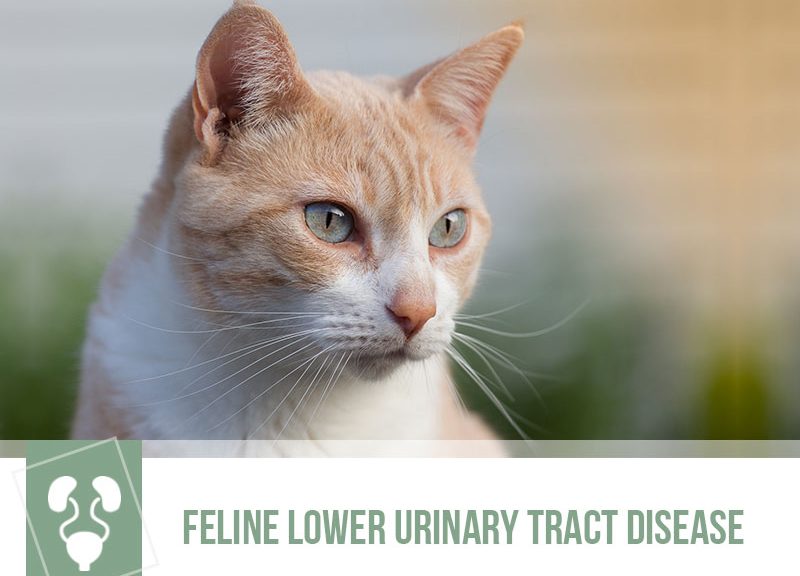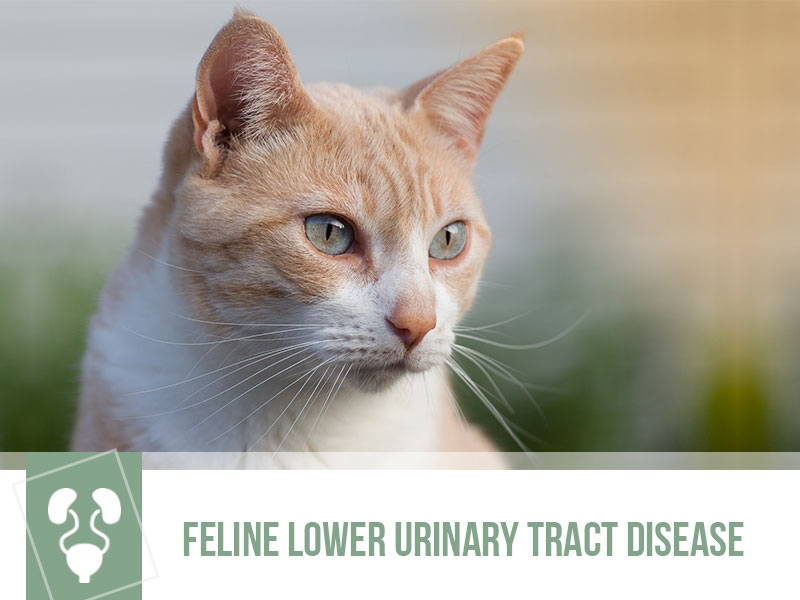Feline Lower Urinary Tract Disease (FLUTD) is a term used to describe conditions that can affect the lower urinary tract of cats (the bladder and/or the urethra – the tube that carries urine from the bladder to the outside of the body). The conditions which cause it can vary, but the signs are generally very similar.
Cats with FLUTD typically have difficulties urinating (crying and yowling with pain when urinating) and urinate more times than usual. They may also have blood in their urine and urinate outside the litter box. Affected cats may only be able to pass small amounts of urine or no urine at all. Please keep in mind that cats unable to pass any urine at all should been taken to vet immediately, as this is an emergency!
FLUTD occurs most frequently in middle aged, overweight cats that get little exercise, use an indoor litter box, have restricted access outside and eat a dry diet, but it can occur in any cat. Stress may also increase the risk of a cat suffering from this condition.
Urinary tract infections, urinary stones and feline idiopathic cystitis are amongst the most common conditions that can affect the bladder and urethra of cats. Feline idiopathic cystitis is a disease which the cause is unknown. It involves inflammation of the bladder and it is thought stress plays a major role in its development.
In some cases, a more severe condition can occur: the development of a blockage in the urethra. This prevents the cat from passing urine and emptying the bladder. This condition occurs most frequently in male cats and if left untreated it can be fatal.
Feline Lower Urinary Tract Disease has different treatment approaches, so if you notice any of these signs on your cat do not hesitate and take your pet to the vet!
Would you like to know more about cats? Check our Feline Courses:

